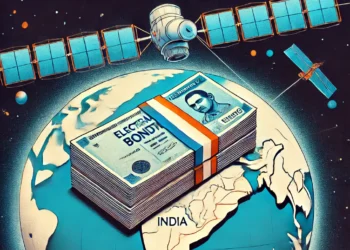Most countries follow a policy of assigning spectrum for terrestrial services through a process of auction. In India, the practice is perpetuating since 2010 when the 3G & BWA (Now 4G) spectrum was put to auction, and the outcome was a huge success. But when it comes to satellite spectrum, most countries allocate it through administrative means, and the process of auction is not implemented. In this note, we will make an attempt to analyze what is the reason for this difference in approaches, and at what point in time the approaches might align.
What is ITU’s Role?
Satellites need two important resources. A) A place to park itself in the sky (parking slots/orbits); B) An access to a frequency band to communicate with earth stations (orbital frequencies). Both these resources are intertwined with each other and are allocated by ITU based on meeting certain rules and regulations — which involve facilitating coordination with all nations. Why? The reason:- without going through such a process (involving a central agency), there will be chaos (total confusion) and therefore, the orderly growth of the sector will get hampered (orbital slots are scarce, and frequencies have to be separated out in space to prevent the satellites from interfering with each other).






